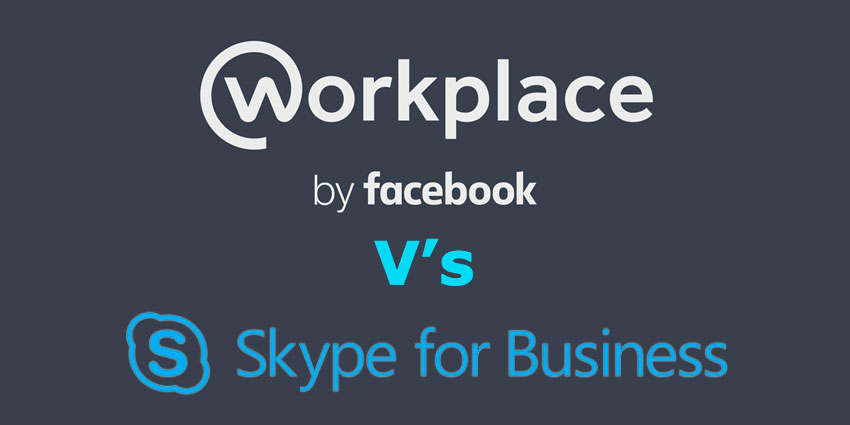In a business world that’s constantly focusing on the best solution for communication and collaboration, it’s a good idea to check out some of the latest competitors in the market from time to time. Right now, two of the major contenders for collaboration and communication through instant messaging and voice calls, are Microsoft’s Skype for Business, and Workplace by Facebook.
Here, we’ll take a look at the features of both, and whether one seems to be more effective and efficient than the other when it comes to getting the job done.
Skype vs. Workplace Features
Let’s begin with a quick overview of the features you can get from both services.
Skype for Business offers:
- Premium Server operation or SaaS option
- Persistent chat features
- Response groups
- Presence availability status
- Federation
- Online meetings and conferences
- Video and voice calls
- Instant Messaging
Workplace offers:
- Cloud service operation with mobile apps
- Work chat feature
- Groups
- Presence status indicator
- Multi-company group creation
- Video and voice calls within work chat
- Conferencing
- Work chat (basically a boosted version of messenger)
Privacy and Security
The first question we need to ask is about privacy. After all, Workplace comes from Facebook, which has seen some controversy about its user privacy issues. As a business product, Workplace is required legally to have some security features, and the Workplace FAQ claims that employers retain ownership over the information that employees create. However, we can only wait and see what happens in terms of privacy in Workplace.

The Similarities between Workplace and Skype
At a basic level, both available platforms are very similar. The Work Chat from Facebook mirrors the instant messaging you’d get on Skype, and you can add in voice, video, and various other people too, just like you would in Skype for Business.
Workplace feels just like using Facebook, while Skype for Business behaves just like Skype in most respects. That means that both apps focus largely on user experience. What’s more, Workplace’s interface is feed-based, while Skype’s is contact-based. However, as long as users know where to go for their communications, both interfaces work well.
The Differences between Workplace and Skype
Perhaps the most obvious difference between Skype and Workplace is that Workplace is only for the cloud. There’s no option for local deployment. This isn’t surprising, but if you prefer an on-premises server then you’re going to be disappointed.
There’s also a difference in pricing to consider. While Workplace charges by active users, and Skype for Business Online uses a similar solution through Office 365 user accounts, Skype for Business Server uses entirely “up-front” pricing, with licensing and implementation costs. Workplace is therefore a lot cheaper than Microsoft Office 365.
It seems that Facebook is looking for a way to compete with Microsoft on both feature and price points. A low per-user pricing model may be the best way for this new app to make its way into the competitive space.
Additionally, Workplace offers the option to integrate third-party apps. Facebook learned from an ecosystem of consumer games and apps, and built an API that lets developers create add-ons for Workplace. You can also do this with Skype for Business to a certain degree, and there are various third-party apps on the market. What’s more, Microsoft offers a registry, though it’s incomplete, which means that Workplace does have a slight edge in terms of integration.
Workplace is A Solid Competitor
Despite the fact that it’s moving into a highly-saturated market, Workplace has plenty of chops to offer, but it may still struggle to achieve high-level adoption. Part of the reason for this is that competitors have already built loyalty among customers, and, at the same time, Workplace may struggle to get out from under the issues surrounding privacy on Facebook. A single data leak could be enough to destroy the service before it ever gets its claws into the marketplace.
Since Workplace is still relatively new, we can only wait and see how it develops as time passes by. It’s sure to be an interesting journey.






